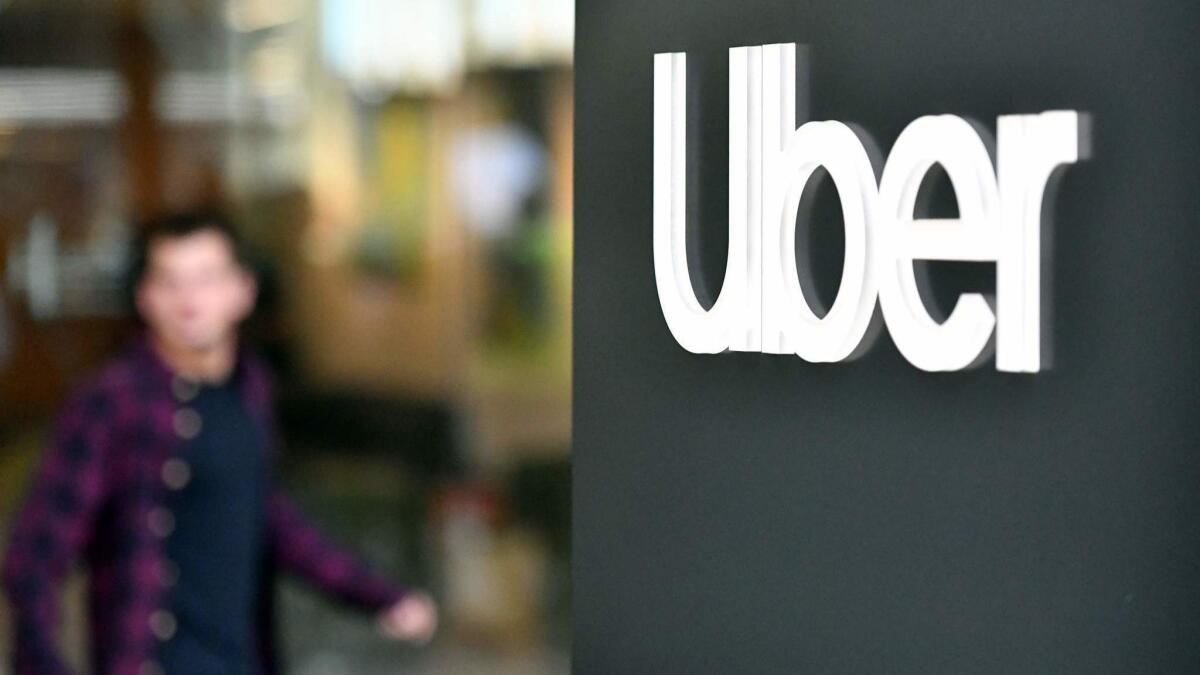Uber will cut back customer promotions after losing $1 billion in first quarter

- Share via
Uber Technologies Inc. posted a $1-billion quarterly loss, among the largest of any public company.
Nelson Chai, the company’s chief financial officer, laid out a path for costs to eventually come down. On a conference call after the report, Chai said Uber would cut back on customer promotions and that marketing expenses as a percentage of revenue should decline in the second quarter. Shares jumped as much as 4.3% in after-hours trading, following Chai’s comments.
The world’s biggest ride-hailing operator generated $2.76 billion in adjusted revenue in the first three months of the year, an increase of 14% and just exceeding analyst estimates of $2.75 billion.
Uber’s loss in a single quarter was larger than that of North American rival Lyft Inc. in all of last year, though it fell within the preliminary range Uber had issued on May 13. In the same period last year, Uber had a profit of $3.75 billion, thanks to the sale of international assets. On an operating basis, Uber’s losses more than doubled in the first quarter from the year before.
The stock first started trading on May 10, when it opened below the IPO price of $45 a share. It has remained beneath that point ever since. The price at the close on Thursday was $39.80, giving the business a market value of $67 billion. Lyft and Uber have both seen heavy interest from short sellers skeptical of their ability to build sustainable businesses.
One number analysts have their eyes on: Slowing growth of gross bookings, a key measure of what customers spend with Uber. They totaled $14.7 billion in the quarter, an increase of 34%, compared with 37% in the fourth quarter. Uber said bookings grew 41% from a year before, after adjusting for currency fluctuations and excluding regions where the company no longer operates.
Another key question for investors is how cutting losses, should that even happen, would affect long-term demand for Uber’s services, Tom White, an analyst for D.A. Davidson, wrote in a note to clients.
More to Read
Inside the business of entertainment
The Wide Shot brings you news, analysis and insights on everything from streaming wars to production — and what it all means for the future.
You may occasionally receive promotional content from the Los Angeles Times.










